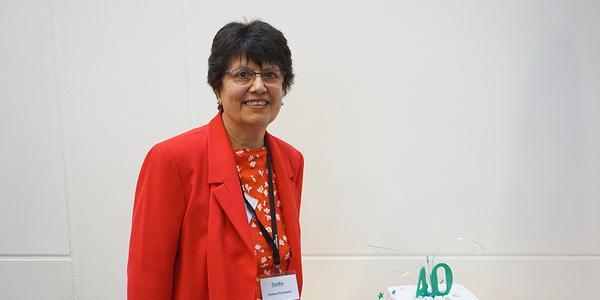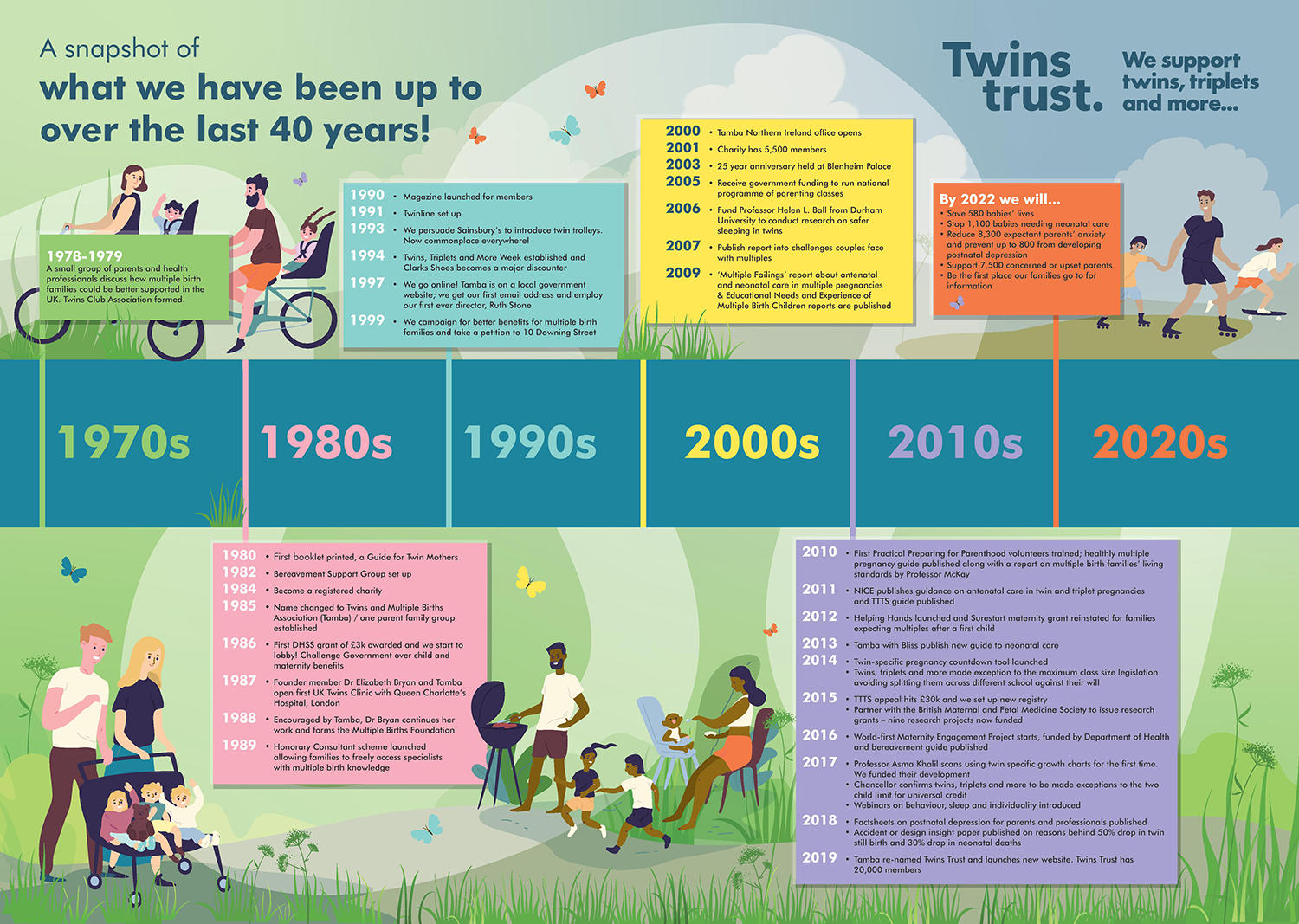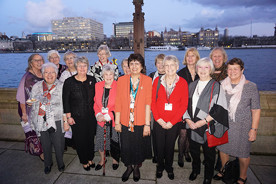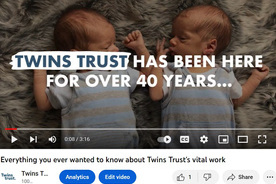18 December 2019
Twins Trust was born in a suburban front room in Surrey.
That front room belonged to our President Ajibha-Judi Linney, known as Judi, who had come to the UK from South Africa during the Apartheid era.
Judi was unable to attend university in South Africa (despite passing the entrance exams) because of her colour, so she responded to an advert to come to the UK where she trained to be a nurse and subsequently qualified as a midwife and health visitor.
This is her story about how she became one of the founders of Twins Trust.
Judi was awarded an MBE for health care and the community in 2008. She remains at the heart of our charity.

Pregnant and feeling a little uncomfortable Judi Linney was shocked when she was told at seven months pregnant that she was having twins.
She’d given up working in London and moved to near Woking in Surrey with husband Howard.
“My pregnancy was good and non-eventful until I got to seven and a half months. My feet were starting to swell up and I was very big, so I went into hospital for an x-ray.
“I had one of those hospital gowns on for the x-ray, you know the ones that show your behind! I couldn’t even do it up as I was so big.
“After the x-ray (there were no routine scans back then), I remember hearing my husband’s voice, then the doctor’s voice who was telling Howard (and not me!) that we were having twins and that one ‘did not look very good’.
“I shuffled out of the room with bits on show and just remember saying, in disbelief, “twins”? I think I was in shock. I started worrying about money and the fact that my family were no longer nearby to help.
“Then I didn’t want to get too excited because I was worried about the second smaller baby and think I tried to protect myself a bit.
“There were a few sentences in the Bounty book about having twins. But there were no classes, no brochures, very little information on looking after twins. I felt quite alone.”
Valentine’s night 1973 was not a romantic one for Judi. With badly swollen legs she went into labour, remaining anxious about the second smaller twin.
“My first baby Zareena, was born and weighted a healthy at 6lb 1oz and the second, Shareen, was delivered by forceps and weighed 4lb 11oz. Both were taken immediately into special care with no opportunity for me to hold them.
“After a few hours, Howard was at home and got a phone call saying it appeared the twin girls were OK, but that I was very ill. My blood pressure had skyrocketed and I had a post-eclamptic fit. I was sedated for 2-3 days which was upsetting as didn’t see the girls at all, and it was frightening for Howard.
“He was left to feed the girls in special care. It was a very procedure-based existence in hospital and we got little attention. Lines of communication were poor.
“I was wheeled in to see them after a few days, but there was no encouragement to touch or hold them….but that’s just how it was.
“After a week we came home with one of the twins Zareena, and was relieved to bring Shareen, home a couple of weeks later.
“I had a home visit from a health visitor then it was up to me to take the girls to clinics. I was lucky that I was a health visitor myself, but the service was different then, it was more cradle to the grave as we worked with everyone, even visiting schools.
“No one I came across had knowledge about caring for twins, which I suppose is when I felt something needed to be done.
“Those first few months were very isolating. Howard was back at work. There was no social media so I tried to go out when I could, but I was not allowed to take the pram into health clinics or shops so always had to have someone with me.
“When the girls were four and went to school, I used a childminder and went back to work part-time. I started talking to health visitors and midwives about the needs of families who had twins or higher-order multiples.
“Everyone agreed there was not enough information about having twins. I started a plan, I tried to find out where there were Twins clubs, I did some research in libraries, and I wrote letters to various health professionals.
“I wrote to Dr Elizabeth Bryan who had written articles about twins (she was a paediatrician working with twin families in York). She wrote back and wanted to help.
“The other founding members of what was to become the Twins Clubs Association (later Tamba, then Twins Trust) were twin mums June Tatch and Sue Wright along with Carola Zentner, a mother of two sets of twins.
“In the autumn of 1978, we held a meeting at the NCT headquarters in London attended by representatives from about 12 existing twins clubs across the country.
“This was covered by The Guardian and national TV and radio and over the next few months we were inundated with letters and knew we had to develop a structure.
“The association started to gain momentum from late 1978 to 1980 during which time we produced leaflets and linked with around 120 twin clubs. We became a registered charity in 1984.
“The rest, as they say, is history.
“I am delighted that we are still working hard to improve the lives of familes caring for twins, triplets or more, supporting them through courses, webinars, Twinline and Family Crisis Support; whilst remaining committed campaigners to ensure better births and care and investing in research.”

-strap.svg)


